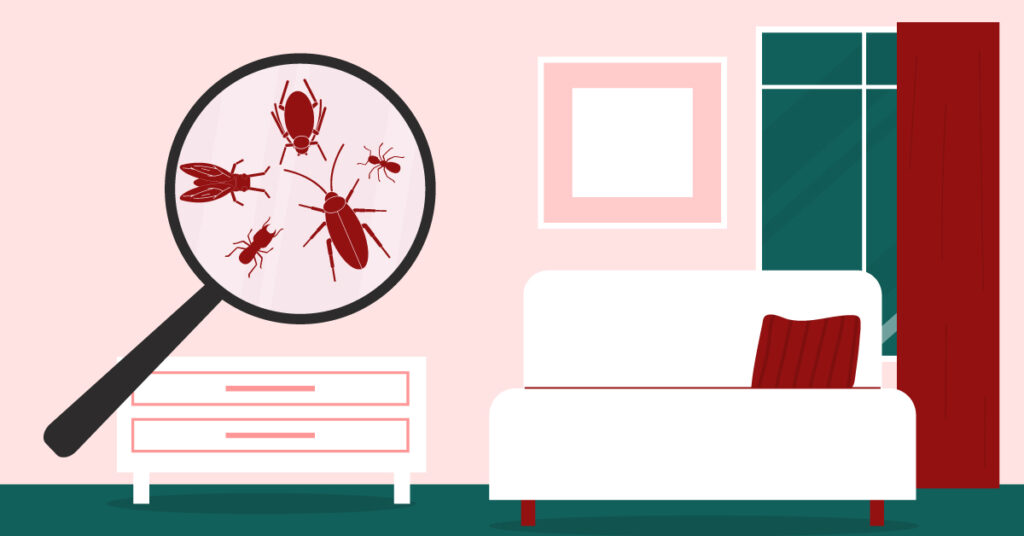If your home is heated by natural gas or, if you have natural gas appliances such as a stove or dryer, you get to take advantage of clean energy at a low cost. However, natural gas can pose a safety hazard if it leaks from any pipes or lines. Leaking natural gas can lead to a fire or explosion if it comes into contact with an open flame. It also can replace indoor oxygen with carbon monoxide, which is dangerous, and even lethal, to breathe.
Because of this, it’s important to understand what causes a gas leak, what to do if you suspect you have a gas leak, and how to prevent leaks.
What Causes Gas Leaks?
Gas leaks can occur because of three basic causes. Faulty appliances can result in a gas leak, either because they malfunction or because they haven’t received proper maintainace. When the lines bringing natural gas into a home corrode over time, or when their fittings and connections are faulty or degraded, they can leak natural gas. And lack of proper ventilation in a home can result in a buildup of dangerous gas when leaks occur. Let’s take a look at each of these causes.
Faulty Appliances
Maybe you have a gas furnace or water heater in your home, or perhaps you love the even, reliable heat that your gas cooking range provides. These appliances probably see heavy use, which can lead to malfunctions over time. The igniter on your stovetop might malfunction, so that no spark causes the flowing natural gas to light into a flame. The connection between your furnace or gas dryer might become loose, allowing gas to leak.
Any small malfunction can leak gas into your home. Having your gas lines and appliances inspected regularly and maintaining them well can help prevent this very dangerous situation.
Appliance Malfunctions
Normally, you can expect a well-made, well-maintained gas appliance to last for years without developing any serious problems. However, even a relatively new appliance can potentially malfunction. If the malfunction has any impact on the normal flow or combustion of the natural gas fuel source, it can result in a leak.
Pipe Corrosion and Connection Issues
If you have an older home, you could easily find that the gas lines leading into it are starting to corrode. These lines have a long lifespan, but depending on their material, they can start to wear out in about 30 years. If you have trees growing near the path the underground lines take to reach your home, the tree roots can also create cracks or holes in the gas line, regardless of the lines’ age. In addition, the fittings that connect your gas lines to your appliances can wear out over time.
If any of these faults occur, the result is a possible gas leak. That’s why it’s a good idea to replace these lines before they reach the end of their natural lifespan. Checking for cracks or corrosion in the gas lines isn’t something you can do yourself, even if you have some access under your home. Only a licensed and experienced expert should handle issues involving gas lines.
Lack of Ventilation
If your home is heated by natural gas or if you have natural gas appliances such as a stove or dryer, you get to take advantage of clean energy at a low cost. However, natural gas can pose a safety hazard if it leaks from any pipes or lines. Leaking natural gas can lead to a fire or explosion if it comes into contact with an open flame. It also can replace indoor oxygen with carbon monoxide, which is dangerous and even lethal to breathe.
Because of this, it’s important to understand what causes gas leaks, what to do if you suspect you have a gas leak, and how to prevent leaks.
What Causes Gas Leaks?
Gas leaks can occur because of three basic causes. Faulty appliances can result in a gas leak, either because they malfunction or because they haven’t received proper maintenance. When the lines bringing natural gas into a home corrode over time, or when their fittings and connections are faulty or degraded, they can leak natural gas. And lack of proper ventilation in a home can result in a buildup of dangerous gas when leaks occur. Let’s take a look at each of these causes.
Faulty Appliances
Maybe you have a gas furnace or water heater in your home, or perhaps you love the even, reliable heat that your gas cooking range provides. These appliances probably see heavy use, which can lead to malfunctions over time. The igniter on your stovetop might malfunction so that no spark causes the flowing natural gas to light into a flame. The connection between your furnace and gas dryer might become loose, allowing gas to leak.
Any small malfunction can leak gas into your home. Having your gas lines and appliances inspected regularly and maintaining them well can help prevent this very dangerous situation.
Appliance Malfunctions
Normally, you can expect a well-made, well-maintained gas appliance to last for years without developing any serious problems. However, even a relatively new appliance can potentially malfunction. If the malfunction has any impact on the normal flow or combustion of the natural gas fuel source, it can result in a leak.
Pipe Corrosion and Connection Issues
If you have an older home, you could easily find that the gas lines leading into it are starting to corrode. These lines have a long lifespan, but depending on their material, they can start to wear out in about 30 years. If you have trees growing near the path the underground lines take to reach your home, the tree roots can also create cracks or holes in the gas line, regardless of the lines’ age. In addition, the fittings that connect your gas lines to your appliances can wear out over time.
If your home isn’t well-ventilated, natural gas and other dangerous gasses can build up. The heating process used by your water heater and gas fireplace produces carbon monoxide as a byproduct, and they need releasing to the open air for your family’s safety. If your ventilation fans cease to work properly or your exhaust pipes clog up, the resulting gas leak into your home is potentially dangerous. Because carbon monoxide is odorless, unlike natural gas, you might not even sense its presence.
Signs of a Gas Leak

If you experience some of these signs and symptoms, you may experience a gas leak. What are the signs you should pay attention to?
A Sulfur Odor
Natural gas is odorless in nature, but gas companies add a chemical so that you notice it if it leaks. If you smell something with the odor of sulfur or rotten eggs, you’re likely noticing a gas leak. Open all the windows, leave the house, and call a plumber, HVAC expert, or your local gas company.
Fatigue and Headaches
Because a gas leak impacts the oxygen levels in your home, you may experience symptoms that include fatigue and headaches, in addition to nausea. If you experience these symptoms with no obvious cause, leave the house and head to the doctor if they don’t improve (and have your gas lines checked).
Dying Plants and Sick Pets
If there’s a slow gas leak in your home, you may not notice it at first — but your plants will. While there are plenty of reasons why house plants might experience unhealthy states, dead plants are often a sign of a gas leak. A gas leak in the pipes under your yard may affect the grass and landscaping, turning it yellow. In the same way, your pets are possibly affected by a gas leak as well. If you notice these symptoms, it’s time to check for a gas leak.
Skin Problems
Some people react negatively to gas leaks by developing dermatological symptoms. Natural gas or carbon monoxide in your home’s indoor air may result in numbness, skin discoloration or blisters. If you develop these symptoms with no other cause, the cause is possibly your indoor air.
Yellow Flames
When your natural gas stovetop, furnace or water heater is working correctly, it should produce a blue flame. If you see a yellow flame, your appliance isn’t ventilating properly.
Call a repair person for help with your appliances in this case.
How to Check for a Gas Leak
As soon as you suspect something is wrong, you should check for a gas leak. You’ll need to call an expert for help, but take immediate steps by putting out any live flames that you have burning, including candles. Don’t turn any lights on or off, as they can create a spark that could ignite an explosion. If you know how to check your gas meter, switch off the natural gas supply to your home before calling a plumbing/HVAC professional or your local gas company.
Preventing a Gas Leak
To prevent gas leaks from occurring, set up a regular maintenance schedule with a licensed, experienced professional who can check out both your gas lines and your appliances for safety. Pay attention to possible wear-and-tear issues as appliances get older. If you notice any change in the performance of your appliances that use natural gas, schedule a checkup. Installing a carbon monoxide detector is another preventative measure that can help determine if your home’s indoor air quality changes.
You might also be interested in: 11 Things You Should Have Or Do At Home To Get Ready For Power Outages




